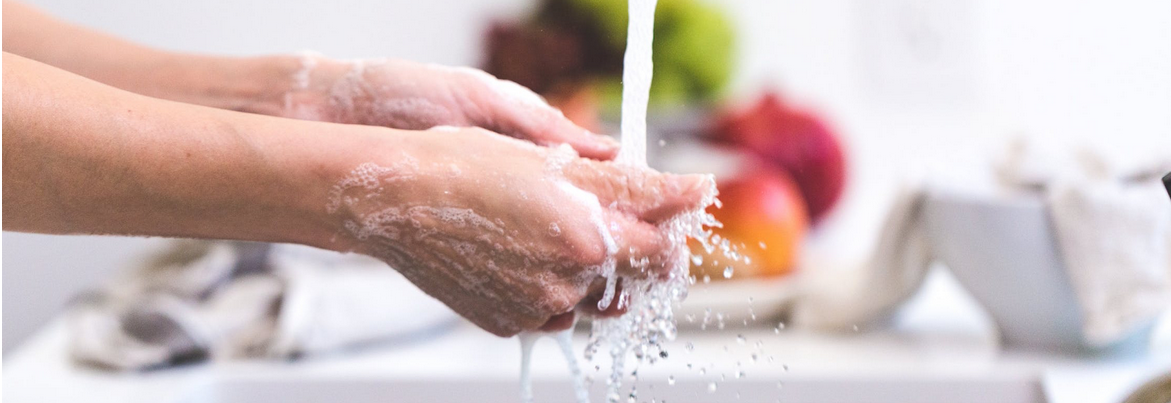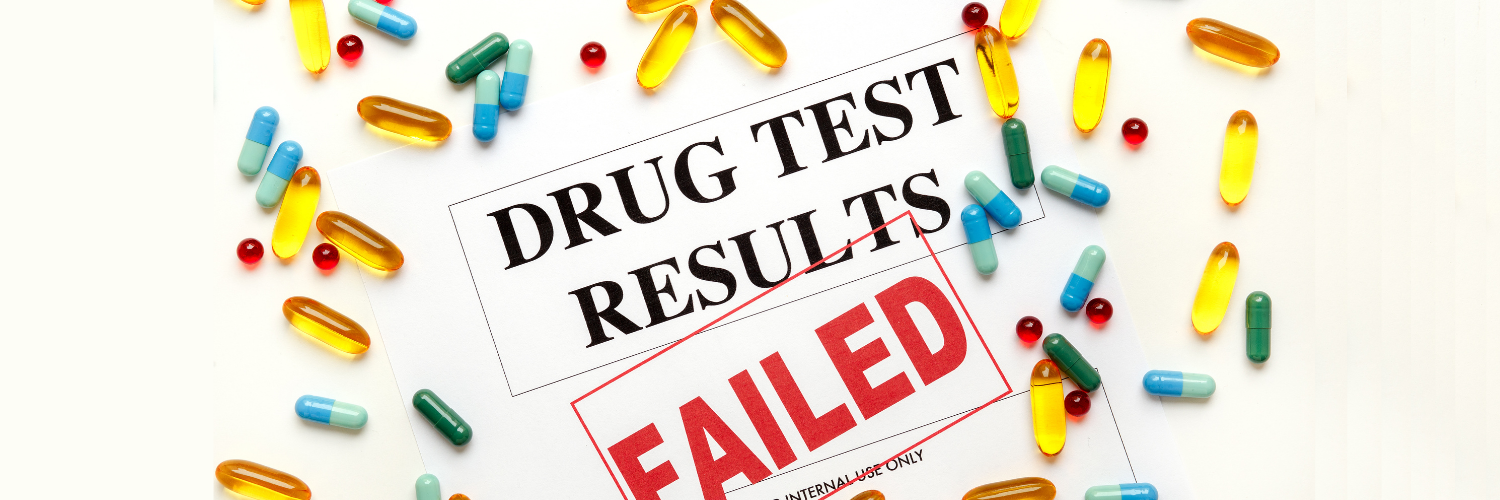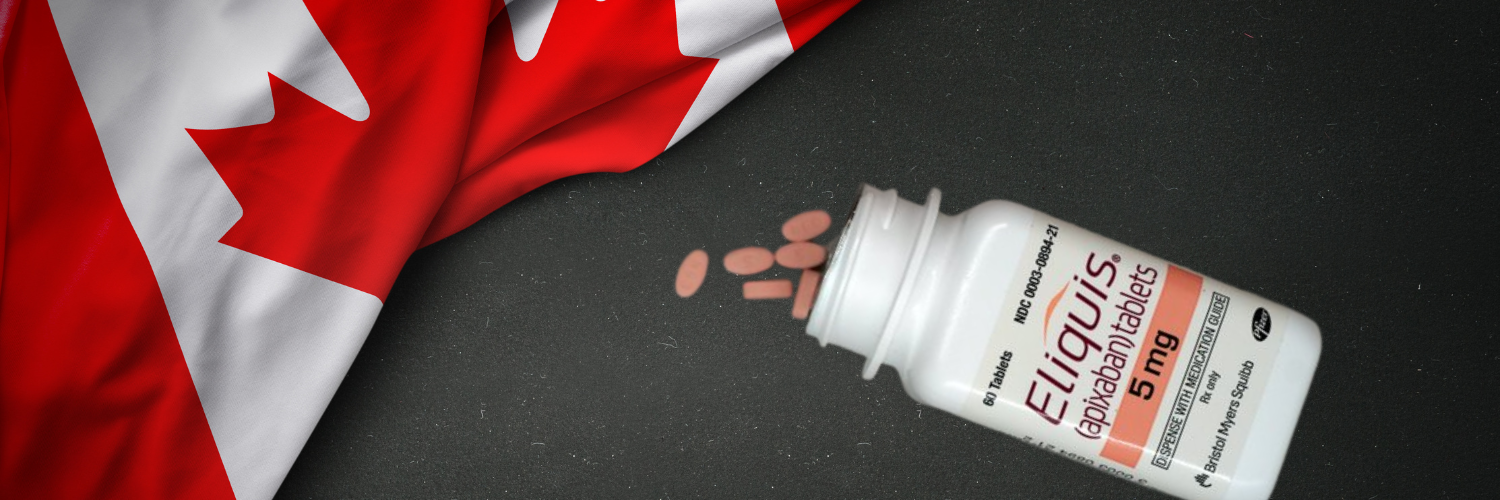Coronavirus (COVID-19) Updates and Pharmacist Tips To Protect Yourself

Now that COVID-19 has appeared in the U.S., you are not alone in feeling fearful or anxious about what lies next. The best thing to do at this point is to learn about the virus and what you can do to protect yourself and your families. That can help you stay calm but cautious about the environments you are in daily. You may be wondering what exactly is this coronavirus thing I keep hearing about in the news? COVID-19 is a respiratory illness that spreads from individual to individual. The first identification of the virus occurred after an outbreak in Wuhan, China.
We will be updating this post as we learn more. [May 12th, 2020]
The Center of Disease Control and Prevention (CDC) is the leading public health institute in the U.S. responding to the Coronavirus Disease 2019 (COVID-19). As more information develops, it is important to stay updated with trusted resources like the CDC and the World Health Organization (WHO). WHO declared COVID-19 a pandemic on March 11th, 2020.
You may be interested in reading our updated posts:
Coronavirus (COVID-19) Update: Warnings on Potential Treatments
How much does the coronavirus (COVID-19) test cost? Should I get tested?
How does coronavirus affect Canadian and international online pharmacy shipping?
How can I determine where a drug is manufactured?
How can I protect myself from coronavirus?
Short Answer: Avoid being exposed to the virus by practicing social distancing.
There are steps you should take to protect yourself and help stop the spread of the virus, ones based on advice from the experts at organizations like the CDC and WHO.
First, you need to understand how the virus keeps spreading so fast. Based on current information, it is believed the virus is primarily spread from person to person. This commonly occurs in two ways:
- When an infected person sneezes, coughs, or talks spreading respiratory droplets to others
- When people are in close contact or within 6 feet of an infected person (about two arms length)
Be aware that recent studies indicate COVID-19 may be spread by people who are not showing any symptoms, so stay home as much as possible! As of this writing, there is no vaccine available to prevent COVID-19. There also is currently no specific treatment for COVID-19. However, the best way to avoid getting COVID-19 is to avoid exposure to the virus and do your best to avoid the two situations listed above for anyone showing flu-like symptoms.
Know the Facts. Stop the Spread of COVID-19 and its Rumors
Learn the signs and symptoms of COVID-19, and call your provider if you develop them:
- Fever
- Cough
- Shortness of breath
- Difficulty breathing
- New loss of smell or taste
- Sore throat
- Chills
- Repeated shaking with chills
- Muscle pain
No matter your race or ethnicity, diseases can affect and make anyone sick.
A person who has completed and been released from quarantine does not risk others for infection.
There are easy things you can do to keep yourself and others healthy:
- Use soap and water to wash your hands frequently for at least 20 seconds.
- Don’t touch your mouth, nose and eyes without good hand hygiene.
- If you are sick, do your part and stay at home.
- Cover sneezes and coughs with a tissue; then place it directly in the trash.
What treatments are there for COVID - 19?
Currently, there is no specific medication approved to prevent or treat COVID-19. However, there is a lot of research being done on potential treatments. Read more here.
Things you can do at home if you have mild symptoms:
- Get plenty of rest and sleep
- Stay warm
- Stay hydrated
- Reduce fever with acetaminophen (Tylenol)
What is social distancing?
Cancellations of normal social activities that result in crowds is social distancing. During a disease outbreak, cancellations of events like festivals, sport events, cruises, conferences, and other gatherings are what help prevent or slow the spread of the disease. When you practice social distancing, you are also purposely staying six feet away from others to lessen your risk of becoming infected by the disease outbreak.
Examples of social distancing:
- Working remotely or from home, avoiding an office space
- Cancellation of schools and university classes or transitioning to online-only classes
- Using technology like video calling to communicate with loved ones
- Cancellation of conferences, basketball games, and other large gatherings
- Avoiding eating or drinking at bars and restaurants and using drive thru and take out options instead
Ibuprofen and COVID-19
You may have heard a lot in recent media reports about avoiding ibuprofen to prevent getting infected by COVID-19. WHO has made a statement regarding this and stated:
“At present, based on currently available information, WHO does not recommend against the use of ibuprofen”
With that said, some providers still remain cautious around the use of ibuprofen to help treat COVID-19 symptoms and prefer using acetaminophen first line.
Pharmacist Position: I agree with WHO and believe there is not enough clinical evidence needed to make a judgment on this debate, but I still do recommend patients try acetaminophen first if they do not have any contraindications to it.
Does loss of smell and taste mean I have Coronavirus?
Many doctors around the world have noticed a spike in patients with COVID-19 reporting anosmia, which means a loss of sense of smell. The CDC has included this as a new symptom of COVID-19. Patients usually notice these symptoms 2-14 days after they have been exposed. I recommend continuing to monitor this page and the CDC for updates regarding symptoms of COVID-19.
Tips to Protect Yourself and Loved Ones From Coronavirus
-
Avoid touching your face.
-
Wash your hands frequently with soap and water, and not just for the sake of it, but for at least 20 seconds even if it seems cumbersome. Think of all the dirty bacteria you are removing by doing a great job at simply washing your hands for a few seconds of your day. FYI: 20 seconds isn't just a random number made up by health organizations: it's backed by science and evidence! Check it out here. Make sure you wash your hands every time you visit a public place, sneeze, blow your nose, or cough.
-
Only when soap and water is not available use hand sanitizer that has at least 60% alcohol in it. Cover your entire hand and rub together until your hands are dry.
-
Do not get into close contact with anyone who is sick and remember to keep your distance from people if COVID-19 begins spreading within your community
-
If you are sick, stay home. It is as simple as that. You will be helping yourself, and protecting others.
-
Be mindful of others, cover your nose when you sneeze, and cover your mouth when you cough. Place used tissues directly into a closed trash. Wash your hands with soap and water immediately after. If they are not available, use hand sanitizer that has at least 60% alcohol.
-
Clean then disinfect frequently-touched surfaces daily, which include the following: phones, keyboards, doorknobs, faucet, sinks, tables, light switches, and handles. You can use soap and water to clean. You can use alcohol based solutions with at least 70% alcohol to disinfect or other EPA registered household disinfectants.
Do I need to wear a facemask to protect against Coronavirus?
Even if you don't feel sick, you can still spread COVID-19. As of April 3rd, 2020, the CDC now recommends almost everyone to put on a cloth face cover when going out in public (e.g. going to get essentials at grocery stores). Cloth face covers are not a substitute for social distancing. Remember to stay six feet apart from yourself and others.
Who should not wear a cloth face cover?
-
Children under age of two
-
People who have trouble breathing
-
People who are unconscious, or not able to remove the face cover on their own.
Cloth face covers should be worn to protect others in case you are infected. Cloth face coverings are not the same as those needed by healthcare workers. It is important to protect healthcare workers and not use facemasks that are meant for them.
What are cloth face coverings?
Cloth face coverings are made from common, low-cost materials found in your home such as cotton fabric and pieces of elastics. Cloth face coverings are not N-95 respirator masks that should be reserved for healthcare workers at this time. Here is a video on how you can make your own cloth face coverings at home today. Here are written directions with images to also help in this voluntary effort and slow the spread of COVID-19.
How do I wear a cloth face covering?
Make sure your cloth face covering is able to:
-
Allow for restriction-free breathing
-
Fit securely and comfortably against both sides of your face
-
Stay in place with loops around your ears or ties
-
Be made with multiple fabric layers
-
Be washed in a laundry machine and dried without damage or alteration
You should routinely wash your cloth face covering in a washing machine. Be mindful not to touch your face, nose, or eyes when removing the covering. Always wash your hands immediately after taking it off.
Do I need to wear gloves?
Make sure you wear gloves when:
-
Disinfecting and cleaning your home
-
When providing care for a person that is sick
Remember to wash your hands immediately after removing gloves. You don’t need to wear gloves when you are outside in public using a shopping cart or an ATM as they may not protect you from COVID-19 and stop germs from spreading. When running errands, the best protection is to wash your hands regularly or use a hand sanitizer (at least 60% alcohol).
How long does coronavirus live on surfaces?
We have learned alot from the Diamond Princess cruise ship where 19.2% of the passengers and crew tested positive for COVID-19. According to the CDC, “A high proportion of asymptomatic infections could partially explain the high attack rate among cruise ship passengers and crew.” The concern here is we learned that COVID-19 RNA was identified in cabin surfaces from passengers who were asymptomatic and symptomatic infected up to 17 days after all passengers had been evacuated. However, it is important to note this was before disinfection had begun and we still do not have enough data to determine COVID-19 was spread from these contaminated surfaces on the ship.
According to WHO, it is not certain how long the COVID-19 virus remains on the surface but studies have indicated coronaviruses may stay on surfaces for a few hours or up to several days.
Pharmacist Position: Yes, we may not have enough data to say contaminated surfaces cause transmission of COVID-19 at this time, but I recommend practicing good hand hygiene and disinfecting frequently-touched surfaces daily even if it seems like an overreaction. Protecting yourself and loved ones is worth overreacting for.
Should I travel during the coronavirus outbreak?
The Department of State has advised U.S. citizens to avoid all international travel because of the COVID-19 global impact.
See all CDC Travel Recommendations
Before a Coronavirus Outbreak Occurs in Your Community
The CDC recommends you are prepared and have a plan ready for your family before an outbreak occurs in your community. Check out information to create a checklist here.
The CDC recommends “[making] sure you have access to several weeks of medications and supplies in case you need to stay home.”
Pharmacist TIP: That advice must not be taken lightly. Chronic medication adherence is vital to ensuring the health and safety of all people no matter what age. As you are reading this, ask yourself this question: “Do I have at least a 30-day supply of my chronic medications in the house right now?” If the answer is no, call your local pharmacy and tell them you would like to pick up a refill for all your chronic medications as soon as possible. If you're worried about interacting with sick people at the pharmacy, find a pharmacy with a drive thru, if you can, and pick up your prescription from the safety of your vehicle.
Some of you have health insurance that offers a pharmacy benefit manager mail-order pharmacy. You may try getting a three-month supply through those options.
I cannot stress this enough: make sure you have enough medication on hand in case you are not able to leave your house.
You can find savings on almost all prescription medications at U.S. pharmacies using the U.S. Prescription Discount Card.This is most helpful for the uninsured, but even for the insured, many generic drugs may be less expensive to pay out-of-pocket rather than your co-payment with your insurance.
If you cannot get your medications locally due to affordability or other access issues, consider comparing drug prices among PharmacyChecker-accredited international online pharmacies. See: https://www.pharmacychecker.com/drug-price-comparisons/.
Which OTC medications and health supplies should I stock up on?
The CDC recommends to “be sure you have over-the-counter medicines and medical supplies (tissues, etc.) to treat fever and other symptoms. Most people will be able to recover from COVID-19 at home.”
They don't provide guidance on exactly what medications to keep stocked up, but don’t worry we have some tips for you.
A Pharmacist’s Coronavirus Pandemic Checklist:
-
Before OTC medications, make sure your are stocked up on at least a 30-day supply of all your prescription medications. Ask your pharmacist if you can get a 90=day supply on all your chronic medications just to be safe.
-
Stock up on acetaminophen or Tylenol for the entire household that can be used to help reduce fever and body aches.
-
Have saline nasal spray and pseudoephedrine on hand to help with nasal congestion.
-
Have cough syrup with dextromethorphan on hand to help control coughing.
-
Keep a diarrhea remedy on hand like Pepto - Bismol.
-
Make sure you have enough hand soap for at least 30 days.
-
Keep hand sanitizer or cleaner stocked with at least 60% alcohol base.
-
Keep a thermometer on hand to check body temperature.
-
Make sure glucose meters and blood pressure monitoring devices are working properly.
-
Have fluids with electrolytes on hand like gatorade or pedialyte to support the body and replenish fluid loss when sick.
Good Hand Hygiene During Coronavirus
I am sure everyone reading this knows exactly how to wash their hands and doesn’t need any advice on that, but I would like to challenge that and review 5 science-based steps on how to appropriately wash your hands and protect yourselves from COVID-19.
Step 1 - Wet your hands with running water that is clean, shut the tap, apply soap.
Step 2 - Lather all surfaces of your hands with soap including the backs of hands, under nails, and between fingers.
Step 3 - 20 seconds at minimum how long you should scrub your hands for. No one is going to set a timer for that, but it's backed by science so sing the “Happy Birthday” song twice or “Twinkle Twinkle Little Star” twice and you're good.
Step 4 - Turn the tap back on, rinse your hands with running water that is clean.
Step 5 - Use only a clean towel to dry your hands or air dryer.
That is how you correctly wash your hands. Truly ask yourself if you were doing that! Didn’t think so.
Who is at higher risk of getting COVID-19?
The CDC has looked at information from the start of the COVID-19 outbreak in China, and it shows that some people are at a higher risk of becoming very sick from COVID -19. Those people include:
- People who are 65 years and older
- People who live in a long-term care facility or nursing homePeople with serious pre-existing medical conditions:
- Chronic lung disease
- Moderate to severe asthma
- Serious heart conditions
- Immunocompromised including cancer treatments
- Severe obesity
- Diabetes
- Renal failure
- Liver disease
If you fit these categories, it is extremely important you take actions described above and here to reduce your risk of getting COVID-19.
As for everyone else, keep calm, proceed with caution, and only stay updated on facts from credible sources like the CDC and the WHO.
How to Cope Coronavirus-related Stress
Dealing with the stress from the COVID-19 outbreak hasn't been easy for anyone. You and your family may be feeling strong emotions, such as fear, anxiety, and just overwhelmed during this time. It is important to find ways to cope with stress by taking care of yourself and your loved ones.
You may feel stress in different ways during this outbreak, which can include:
- Having a hard time falling sleeping or concentrating
- Disturbed sleep and eating patterns
- Feelings of worry, fear, and anxiety regarding protecting the health yourself and loved ones
- Chronic health problems becoming worse
- Mental health problems becoming worse
- Higher intake of tobacco, alcohol, and other drugs or substances
Pharmacist Tips on How to Cope with Outbreak Stress
Pause the media - Our media is flooded with opinions and news on COVID-19 every day, and this can be quite overwhelming. The constant reminder of the pandemic in the news and social media may cause you to feel more anxious so try to limit your exposure and stick to one or two sources that you trust.
Eat Healthy - With added stress or when working from home it can become easy to start eating unhealthy. Your body may crave extra carbs or junk food during this time but it's important to maintain a healthy and balanced diet with fresh fruits and vegetables. Don't forget to stay hydrated by drinking enough water daily. By eating healthy, you will feel healthy, providing yourself with the physical and mental energy you especially need right now. Avoid increased alcohol, tobacco, and other drugs or substances usage during this time.
Sleep Well - It is sometimes difficult to sleep when feeling anxious, but it's important to stick to a regular sleep schedule and not stay up later than usual. Limit caffeine and alcohol intake as they both have a negative effect on sleep quality.
Get Moving - Exercising is a great habit to reduce anxiety and stress. Just by going out for fresh air for a short walk can release endorphins in your body and make you feel good. If you can't get outside, make sure to move around inside the house and don’t sit around all day!
Keep Calm and Relax - Try to find an enjoyable activity to do when you have some free time such as: listening to music, reading a book, cooking, baking, or anything that will help distract your brain and give you some pleasure. Just make sure that distraction isn’t alcohol, tobacco, or drugs!
Stay Connected - Talk to loved ones using mobile phones, FaceTime, and Zoom video calls. Find ways to connect with members of your household and do things together on a regular basis, such as eating dinner together, playing board games, or having a movie night.
Shift Perspective - Sometimes stress forms due to our perspective. We need to accept that yes we are in a crisis, but this will pass just as all the previous crises have passed. When negative thoughts about the present run through your head, remind yourself that times will get better. Talking with a trusted friend can help in keeping a healthy perspective. The Substance Abuse and Mental Health Services Administration has a Disaster Distress Hotline you can call at 1-800-985-5990 or you can text TalkWithUs to 66746.
Pharmacist Tips on How to Protect Yourself from Coronavirus When Shopping at the Grocery Store
COVID-19 has caused families to make changes in daily routines. It’s important that we continue eating balanced and nutritious meals to stay healthy, so here are some tips on how to plan for your next grocery trip.
Check First - Grocery stores may have changed their shopping hours or how they operate due to COVID-19 so it's best to check online or by phone before you head out. Check to see if grocery stores are open for pickup or home delivery only. Grocery stores may also have designated specific shopping hours for seniors.
List Up - Make a list of all the items you need to get before you head out so you can limit the amount of time you spend at the grocery store.
Don't Overbuy - Buy essential groceries you need for about 1-2 weeks at a time to help ensure there is enough groceries for all. We are all in this together and need to make sure we all have access to food.
Cover your Face - As we discussed earlier, the CDC recommends almost everyone to put on a cloth face cover when going out in public.
Practice Social Distancing - Many grocery stores have placed markers on the floor that are 6 feet apart so you know where to stand while waiting in line to check out. Continue to practice social distancing and be mindful of others' space when you are out shopping.
Wipe Down - Bring disinfecting wipes to wipe down the handle of your grocery cart. Many grocery stores are offering wipes for customers but it's good to have a backup in case they run out. Wipe down your kitchen counters and surfaces after putting away your groceries. You can also wipe down your packaged groceries as an extra precaution.
Wash Reusable Bags - Thanks for helping protect the environment, but remember to protect your household by washing your reusable bags regularly.
Wash Hands - When you come back from the grocery store, wash your hands immediately and then wash them again after you put away your groceries.
Storing and Preparing - Always rinse fruits and vegetables under running water and store food that can go bad quickly in the fridge or freezer.
Can my pet or other animal spread COVID-19?
Many pet owners want to protect their family and beloved pets. The problem is that there just isn't much information on this yet. The FDA has stated that “the risk of pets spreading the virus that causes COVID-19 in people is considered to be low. At this time, there is no evidence that animals play a significant role in spreading the virus that causes COVID-19.”
Until more information is available, treat your pets like how you would a family member during this time. Here are some tips:
- Only let members of the household interact with pets, so be mindful of other animals or people when taking your pet out.
- Keep cats from going outdoors and interacting with other animals or people.
- Keep dogs on a leash when going out and maintain a 6 feet distance from other animals or people.
- Avoid large gatherings of people and pets (e.g., dog parks).
Learn more about Coronavirus and online pharmacy safety
How can I determine where a drug is manufactured?
Can a pharmacy fill a prescription early?
Coronavirus (COVID-19) Update: Warnings on Potential Treatments
Do you have questions or concerns about safely accessing medication, whether locally or online? We’re here to help.
Comment below or ask a question by logging in to My PharmacyChecker.



